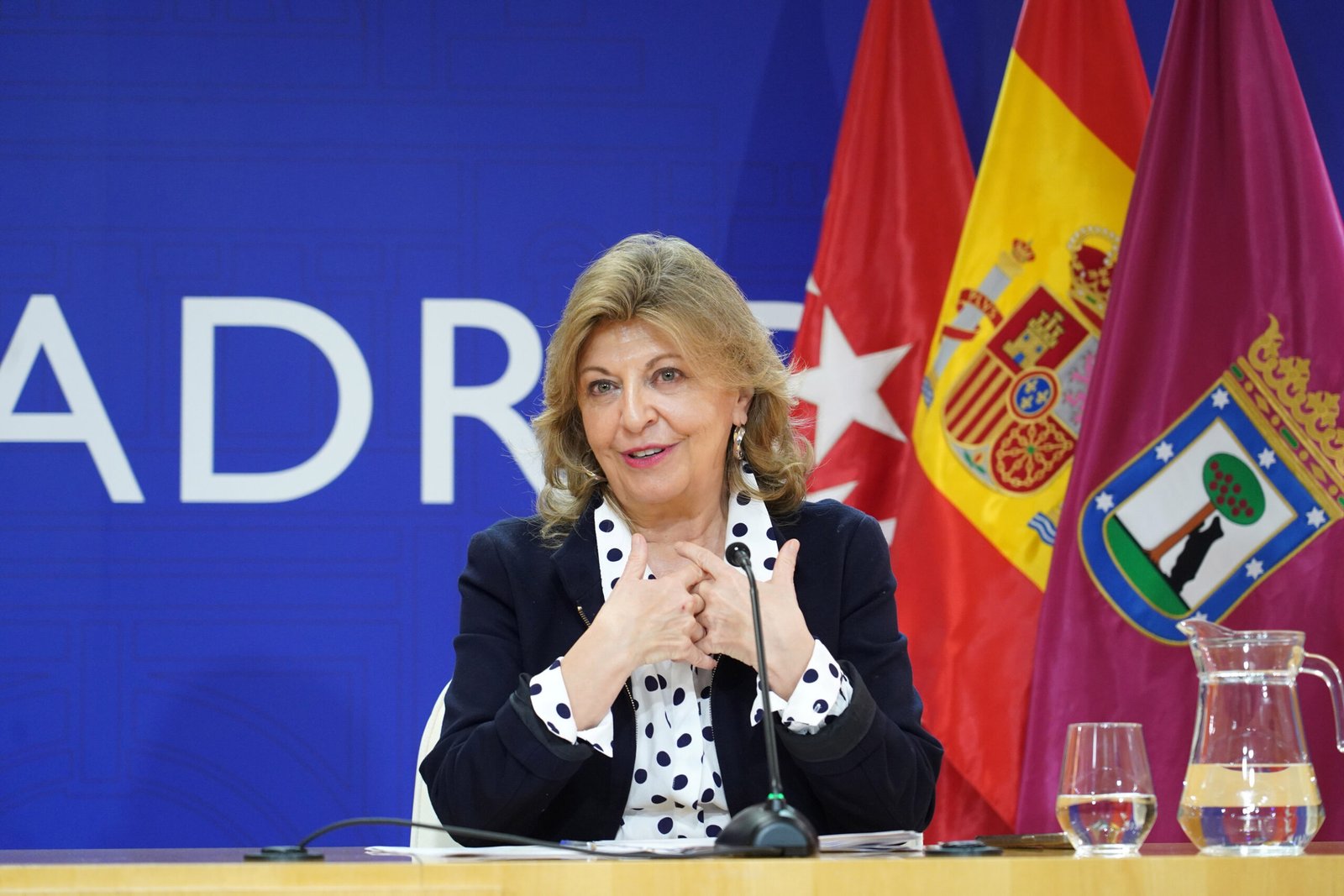Hidalgo, during her intervention this Thursday, after the weekly Government Board meeting
The Madrid City Council complied with the spending rule and closed 2024 with a surplus of 483 million euros, 754 million in treasury surplus, and a budget execution rate of 92%, all without increasing the tax burden on citizens and businesses and paying suppliers in December within an average of nine days. These figures were reported by the delegate of Economy, Innovation, and Finance, Engracia Hidalgo, during the Government Board meeting, highlighting the economic solvency of the City Council and the excellent work carried out by municipal managers.
Out of the total of 5.939 million euros in non-financial expenditure included in the capital’s budget for 2024, 92% was executed, maintaining the upward trend in budget execution, which has not been below 90% in the last four years. In total, the Government areas, its autonomous bodies, and the districts executed 5.623 million of their budget, the highest level of execution since 2015, 36% higher than in 2018.
Also, last year, the execution in investments reached 80%, the highest figure since 2015, only surpassed in 2023 (81%). It increased by four percentage points compared to 2022, 36 points compared to 2019, and double that of 2018, a year with a much lower volume of investments.
Furthermore, another milestone in the execution of these accounts is in social spending. Last year, municipal managers allocated 981 million euros from the budget to these policies, the highest amount in the historical series, which is 45 million more than the previous year and 406 million more than in 2018 (with a social spending execution of 571 million). These amounts have led to the current allocation of 283 euros per capita to social spending in the capital, 146 euros more than in 2015.
The 21 districts of the capital had an extraordinary performance in terms of budget execution in 2024. They achieved 94.2%, a percentage higher than the budget average and the highest figure to date. Over 842 million were managed directly by the districts in essential services for citizens, a figure that has been growing year after year. Since 2019, the districts have gradually increased their spending by an average of 212 million annually compared to the mandate before Almeida took office.
Regarding the nine districts in the south and east, 441 million euros were allocated, 124 million more than in 2018 (+39%), with an execution of 281 euros per person in these districts, compared to 212 euros per capita in the remaining 21.
Income Increase
Regarding the execution of the non-financial income budget of the City Council, rights amounting to 5,986.9 million euros were recognized, exceeding by 323.5 million the figures from December 2023, the highest since 2015, demonstrating the economic recovery in the city of Madrid. All this, despite the Constitutional Court ruling on the capital gains tax, after which the City Council has already refunded nearly 500 million euros. In relative terms, rights were recognized for 99.9% of the forecast of non-financial operation income.
As for direct taxes, Property Tax (IBI) reached an execution of 1,516 million euros; capital gains stood at 262 million; the Tax on Economic Activities (IAE) reached 141, and the Tax on Mechanical Traction Vehicles (IVTM) executed 140 million, 386,000 euros less than in 2023 due to the increase in vehicles with low pollution discounts and the decrease in vehicles with higher fiscal power. The indirect tax on Constructions, Installations, and Works (ICIO) reached 117 million.
In addition, the section on fees and other income reached an execution of 807 million euros, 19 million more than the previous year. Furthermore, income from assets increased by 32 million euros, up to 154 million.
These positive results demonstrate the consolidation of economic reactivation in the city and have been possible, as Hidalgo explained, «despite lower capital gains income and the lack of involvement from the central government to compensate for those losses.»
Economic and Financial Solvency
Regarding the treasury surplus, 754 million euros were reached, 272 million more than the previous year, which will allow for various investment projects and further improvements to public services, assuming the Central Government authorizes its availability.
As for the execution of the City Council and its autonomous bodies’ surplus in 2024, it was estimated at 72.8 million euros, with an execution rate of 83.7%, considering that these actions have to be fully developed and executed in a single fiscal year. This surplus was mainly allocated to investment, in addition to the 481 million euros executed in the budgeted investments for 2024. The execution of the surplus has largely allowed for various actions and renovations in schools across all districts of the capital.
Furthermore, in 2024, the spending rule was complied with, and the financial capacity or surplus was 483 million euros, demonstrating the financial health of the City Council. Additionally, since 2019, the accumulated surplus of the City Council amounts to 1,108 million euros.
Moreover, the level of outstanding debt remains below 2,000 million euros, standing at 1,943 million euros, lower than in 2020, representing 33.18% of current liquidated income, three percentage points lower than the previous year.
The Madrid City Council closed 2024 as one of the local administrations that best paid its suppliers in the last quarter of the previous year. Madrid ended the year with an average payment period of 9.2 days, ten days less than the central government and three days less than the most agile autonomous community in payments. Once again, this data highlights the economic and financial solvency of the capital’s City Council, the legal security it offers to contractors, and the involvement and work of municipal managers. /



